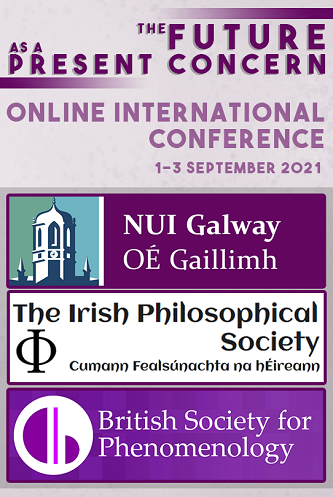‘Polysemous futurity in the cinematics of Cloud Atlas and Nietzsche’s Beyond Good and Evil’

The Future as a Present Concern International Conference 2021: NUIG – IPS – BSP
Panel presentation
Online, 1-3 September 2021
Luisa Rey is reading the letters of a dead man: ‘I’m trying to understand’, she says, why ‘we keep making the same mistakes over and over’. Somewhat abashed, Adam Ewing recites a question from memory, ‘how do we know what we can change, and what things must remain sacred and inviolable?’ Sonmi-451 is in magnetic shackles facing the Archivist. Fabricants, she responds accusingly, ‘have just one possible future’. Zachry listens in dread to the Abbess; possessed, she warns him of the dangerous days ahead: ‘Bridge a broken, hide below. Hands a bleedin, can’t let go. Enemy’s sleepin, don’t slit that throat’. In a cheap hotel, Robert Frobisher signs a letter to his lover with ‘Yours Eternally’, then shoots himself with a stolen Luger. Timothy Cavendish beams. After all the awfulness of the last few days, yes, ‘tomorrow life can begin afresh, afresh, afresh!’
Cloud Atlas (Wachowskis, Tykwer | 2012) concerns six very different characters traversing very different times and very different spaces across the world over some 500 years. These vectors are a loop composed of a disjunctive mosaic of images rendering a complex narration of disparate genres and tones, where the life of each character is captured in the crisis of their present while synchronously effecting and affecting the future vector. Accordingly, I argue, Cloud Atlas has a narrative that sees futurity as polysemous – a perspectival simultaneity of stasis and flux; anticipation, destiny, and novelty; circularity, progress, revolution, and decay.
To make this argument I employ Nietzsche, expressly Beyond Good and Evil (1886), sub-titled as it is Prelude to a Philosophy of the Future. Such resonance with the film, in turn, provides a lens on Nietzsche’s text, as staging the problems of the subject, society, drives, bodies and will in the present as a concern of a fundamental philosophy of the future: beyond brute oppositions of open or closed, static or dynamic, freedom or necessity (§2;§24).